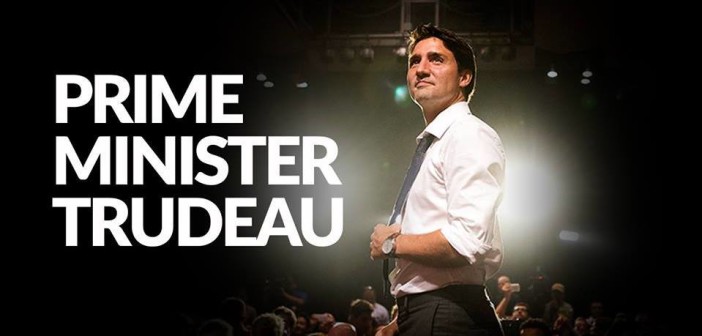Justin Trudeau will be Canada’s next prime minister after leading the Liberal Party to a stunning majority government win, dashing the hopes of Stephen Harper, regarded by many as the worst Canadian PM in the country’s history.
This will be the second time for Canada to be led by a Trudeau, as the 43-year-old Liberal leader follows in the footsteps of his father, Pierre Elliott Trudeau, who served as prime minister for almost 16 years before retiring in 1984.
“Sunny ways my friends. Sunny ways,” Trudeau told his enthusiastic supporters in Montreal. “This is what positive politics can do.”
Canadians, he said, had sent a clear message that it’s “time for change in this country my friends. Real change.”
“We beat fear with hope,” Trudeau said. “We beat cynicism with hard work. We beat negative, divisive politics with a positive vision that brings Canadians together.”
The defeats for the Conservatives include several cabinet ministers: Finance Minister Joe Oliver in Toronto, Fisheries and Oceans Minister Gail Shea in P.E.I., Aboriginal Affairs and Northern Development Minister Bernard Valcourt in New Brunswick and Immigration Minister Chris Alexander in the Greater Toronto Area.
Among other significant losses were Peter MacKay’s former riding in Central Nova, a riding that the former defense minister had held since 1997. Meanwhile, the NDP lost all six seats it had held in Atlantic Canada.
The Liberal wave that washed across the country offered a stinging rebuke to Harper and the Conservatives, who will form the Official Opposition and had based their campaign largely on questioning Trudeau’s readiness to lead.
The Liberals saw a total reversal of their political fortunes after a crushing loss in 2011 that left them with only 36 seats at the time of Parliament’s dissolution.
The Liberals were elected or leading in 184 ridings, having won seats in every province and taking the lead in all provinces except Alberta and Saskatchewan. The Tories followed with elected in more than 99 seats, while the NDP was at 44. The Bloc, meanwhile, was leading or elected in 10 seats and Green Party Leader Elizabeth May was re-elected in B.C.
The Liberals were leading with 39.5 per cent of the popular vote, followed by the Conservatives at 31.9 per cent. The NDP dropped to 19.7 per cent.
Meanwhile, Tom Mulcair’s NDP moves to third-party status, having also been dealt a devastating blow. At the beginning of the 11-week campaign the party was considered a front-runner, only to see that lead evaporate over the past weeks.
Tom Mulcair stays on as NDP suffer a crushing blow
The NDP was on the path to lose 50 seats in Quebec, which in the last election was a significant source of the so-called orange wave. The party had hoped that this election, at the very least, could have resulted in the party’s second-best showing, ahead of 1988 when they won 43 seats and 20 per cent of the popular vote. But for much of the night even that standard was in doubt.
Mulcair gave no hint about his political future, but a spokesman for the party said the NDP leader was not stepping down. Mulcair told his supporters tonight that the election has been about change. Canadians, he said, had voted to turn the page on 10 years of Harper government and rejected “the politics of fear and division.”
He said Trudeau had made ambitious commitments and Canadians will have high expectations for their next Parliament.
“With this election, Canadians have asked us all to work for them,” Mulcair said. “We will not let them down.”
Atlantic sweep
The Liberal Party had jumped to a solid lead early in the evening, painting Atlantic Canada red with a sweep of the entire region.
But the key to the Liberal majority was the strong performance in the vote-rich provinces of Ontario and Quebec. In Ontario, the Liberal Party was leading or elected in around 80 seats, having won in the big cities, including a sweep of Toronto, and recapturing many of the coveted seats in the suburban 905 area around Toronto that it had lost to the Tories in 2011.
The Liberals also made huge gains in Quebec where they have been declared the winners in more than 40 ridings.
The Conservatives had held 159 seats in the 308-seat House of Commons and the NDP had 95, with another 18 seats either vacant, held by Independents or shared between the Green Party (two seats) and the Bloc Québécois and a splinter group.
Because of population growth, 30 new seats have been added this.
In Vancouver Kingsway riding, Don Davies of the NDP handily won.




